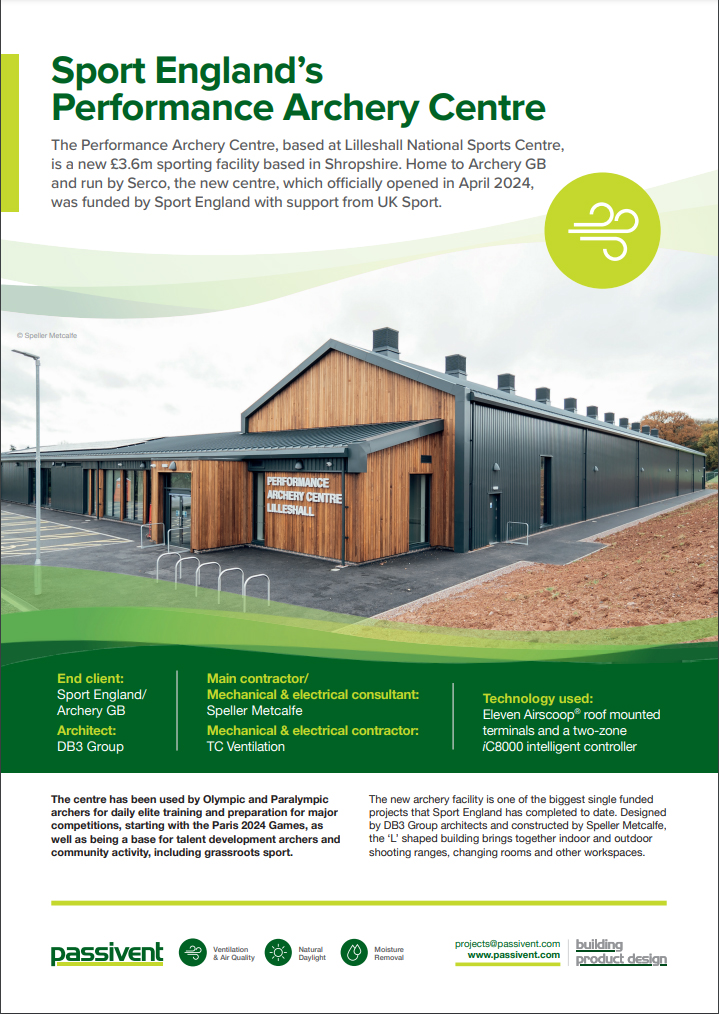The Chancellor’s long-awaited Autumn Budget has landed with more of a whimper than a roar for many in the architectural and construction industries.
In his third Budget since becoming chancellor, Rishi Sunak committed to spending increases of £150bn over three years.
This included £7bn for transport projects and the Institute for Fiscal Studies said the spending plans were "more similar" to those of the Labour governments in the 2000s.
Some key points from yesterday’s announcement include:
- Levelling Up Fund will mean £1.7bn invested in local areas across the UK
- Government backing projects in Aberdeen, Bury, Burnley, Lewes, Clwyd South, Stoke-on-Trent, Ashton under Lyne, Doncaster, South Leicester, Sunderland and West Leeds
- £7bn for transport projects in areas including Greater Manchester, the West Midlands and South Yorkshire
- £24bn earmarked for housing: £11.5bn for up to 180,000 affordable homes, with brownfield sites targeted for development
- 4% levy will be placed on property developers with profits over £25m rate to help create a £5bn fund to remove unsafe cladding
- £640m a year to address rough sleeping and homelessness

But RIBA President, Simon Allford, said: “The Chancellor’s message feels out of sync with the long-term challenges our country faces. Rather than investing in the transition to a low-carbon future, we see significant amounts of money directed towards freezing fuel duty and cutting air passenger duties.
“Additional money for housing, education and infrastructure is all welcome, particularly the focus on investment in new transport provision outside of South East England. But we’re still missing a coherent plan to help us all address climate change and reduce the huge proportion of global carbon emissions generated by the built environment specifically.
“We're about to take global centre stage – I hope the Government can be persuaded to change gear.”
Eddie Tuttle, Director of Policy,
Public Affairs and Research at CIOB, said many of the announcements should have a positive
impact on the construction industry’s output levels.
But he added: “However, piecemeal
funding to address specific issues in the built environment will not provide a
solution to the overarching issue of quality, and the assurance of £5 billion
to remove unsafe cladding must be undertaken by competent and skilled workers.
The Government has announced the total spending on skills will increase by £3.8
billion by 2024-25, however industries such as construction need that support
now in order to achieve a competent and skilled workforce that is desperately
needed.
“Last week, CIOB welcomed
the publication of the Heat and Buildings Strategy as a means of addressing
some of the key issues surrounding sustainability in the built environment.
However, we’re concerned that the Chancellor did not release further
information on how the new funding announced in the Strategy would link with
the UK’s ambitions to meet Net Zero targets by 2050. The Heat and Buildings
Strategy was a clear indicator of the Government’s commitment to decarbonising
our homes on the route to Net Zero. However, the £3.9 billion pledge for heat
pumps is someway short of the Government’s £9.2 billion manifesto commitment
for domestic energy efficiency improvements.
“The Institute is disappointed to see
the Autumn Budget gave no further clarity on how Government intends to meet its
manifesto spending commitments to drive to UK towards net zero. Both the Heat
and Buildings Strategy and Autumn Budget should have included a greater focus
on the need for a clear, long-term, National Retrofit Strategy to address the
carbon output of homes whilst also tackling the key issue of quality. CIOB
would like to see the Government allocate the remaining £5.3 billion towards
the Construction Leadership Council’s (CLC) National
Retrofit Strategy which has been backed by CIOB and many other bodies
within the built environment.”
Jeff May, Director of Government Relations and Business Development at the
Construction Products Association, said it was disappointing to see little help for major industrial users with
energy costs, or any further financial details on net zero strategies. “That
said, we welcome a handful of relevant items in particular: the
announcements of a 12-month relief on businesses rate hikes arising from
premises investment, the cancellation of the planned increase to the business
rates multiplier, and the extension of the uplift to the Annual Investment
Allowance will go some way to supporting manufacturers while we seek to exit
the pandemic in the short-term,” he added.
"Given the pre-Budget announcements
around various net zero and related sustainability strategies, along with the
release in September of the National Infrastructure and Construction Pipeline,
the major elements of spending for our sector appear set. The key then,
as always, will be delivery. If industry and government can work together
and address the supply side risks in particular – labour and skills shortages,
energy prices, logistics bottlenecks, for example – then the economic stimulus
from our sector in support of this Budget will be considerable."
Julie Hirigoyen, Chief Executive at UKGBC, also pointed out that with the COP26 conference just days away, the Chancellor’s announcements felt like they were “from a different planet and a different time”.
“Whilst we welcome changes to business rates to incentivize investment in renewable technologies, new research and development funding, and grants for local authorities, there were no big announcements to fill the clear gap that has emerged around decarbonising existing buildings,” she explained.
“With the Budget and Spending Review coming together, this was evidently the Chancellor’s big opportunity to plug the major gaps in the Government’s Net Zero and Heat and Buildings Strategies, and put the UK on a firm path to net zero over the next few years. By supporting the industry’s plan for a national programme to retrofit our homes, the Government could have delivered substantial progress towards net zero and unlocked a new wave of green jobs to help level up the country. Instead, attention to net zero was tokenistic, repeating old announcements alongside incongruous headlines around carbon-intensive investment in roads, cutting air passenger duty and fuel-duty freezes.
“If the Chancellor is serious about building a strong, resilient economy, then turbocharging the green economy should be at the centre of all investment plans and skills initiatives, not merely be an afterthought. Every year that we fail to invest in tackling climate change increases the financial burden on future generations and Governments.
“With the UK’s green credentials in the spotlight next week, and public concern about climate change at an all-time high, these announcements could not be more disappointing.”
Simon Lewis, construction partner law firm Womble Bond Dickinson, commented that although the £5 billion grant which will be set aside to pay to remove unsafe cladding from the highest-risk buildings in the country is welcome, as always the devil is in the detail.
“Given the significant number of buildings that have been found to be unsafe, limiting this just to ‘higher risk buildings’ and only for cladding is overlooking all of the other unsafe buildings that fall outside these parameters,” he continued. “The sum is of course significant but it probably won't be enough to deal with all higher risk buildings with poor cladding and certainly won't be enough to deal with all unsafe buildings. The government expects the RPDT to raise £2bn, but where is the rest of the funding coming from? It would be useful to know more about how the government intends to support the industry to meet these costs.
"There is a risk that the additional costs on developers from the RPDT (and the gateway 2 levy) will simply be passed on in increased costs for leaseholders and purchasers of new buildings. The government's Impact Assessment already estimates that the cost of complying with the Building Safety Bill/Act will be £3bn, the bulk of which will fall on the industry and is likely to be passed through to the consumer/end user. This announcement doesn’t directly address the central issue of how leaseholders can be rescued from the often crippling costs of making these buildings safe and the sector needs to address this urgently."
Commenting on additional new housing announced at the Budget, Evie John, director at PwC, said: “Any increase to the supply of homes is welcome, particularly when there is a commitment to affordability and a sustainable approach to development. While an additional 180,000 new homes does leave the Government with some way short of its ambitions, this is a step forward.
“Our research tells us that people see a focus on affordable and quality housing as one of the most effective means of levelling up the UK, and tackling the housing shortage has been a priority for successive Governments. While individual programmes of funding will always be useful, it is essential that all levels of government, industry and local communities come together to address the complex picture of need, quality and affordability that exists across the country. This is how specific housing targets will be achieved while addressing the wider levelling up agenda.”
Stephen Phipson, Chief Executive of Make UK, welcomed the direction set out by the Chancellor but still hopes to see more focus on manufacturing as the plans unfold.
“At a time of such hardship for so many people the Chancellor was right to prioritise help for the most vulnerable and those on low incomes,” he said. “Manufacturers agree this has to be a priority for spending in the short term and will support his aim.
“Overall, however, as far as manufacturers are concerned the rest of the statement generated a mixed response. While there were some welcome announcements on business rates and the extension of the annual investment allowance, the announcements on skills amounted to little, if any, new money while the delay in the R&D spending target goes against the aim of making the UK a science superpower. In addition, we had hoped to hear more about driving digitalisation and Net Zero Transition, issues at the forefront of the next industrial revolution. Furthermore, while growth is returning, future prospects look anaemic and will not be helped by the substantial tax rises companies are facing.
“The current approach would benefit from a long-term economic plan. We face huge technological and societal challenges. Manufacturers are ready to seize the opportunities these challenges will provide and, in many cases, are already providing many of the solutions.
“But they can only do so if Government is willing to work with the grain of business and industry. This requires a partnership to develop the vision for our economy in the medium to long term and the development of policies which will support it.”



















